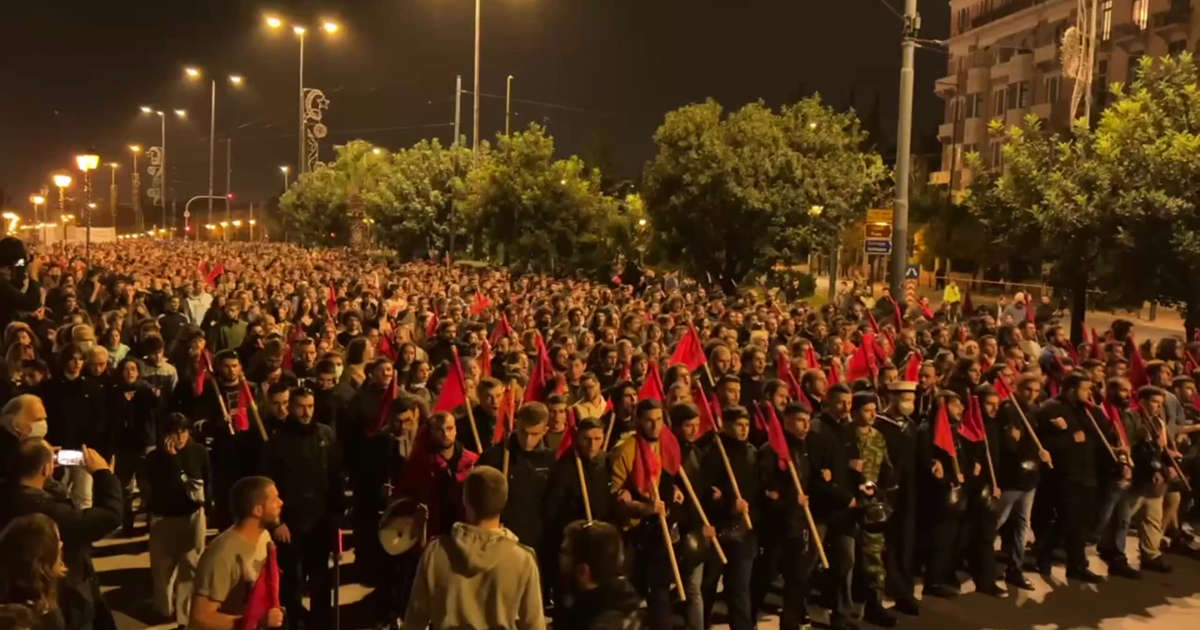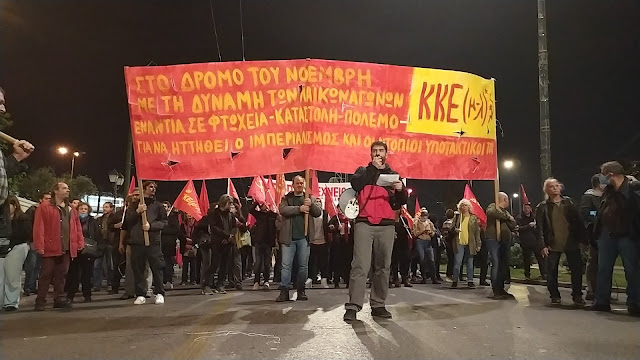On 17 November 2022, thousands demonstrated in the streets of the Greek capital Athens and in numerous other cities to commemorate the 49th anniversary of the student uprising against the military regime in 1973. The demonstrators marched through the city centre towards the US embassy, chanting slogans such as "The people dont want you!" and demanding the withdrawal of US troops from Greece. Greece was then, as it is now, an important base for the US army. Among the Greek people, however, the Yankee troops repeatedly meet with pure hatred, which is expressed again and again in large demonstrations all over the country. The most recent demonstration was in the spring of this year when it was decided to station more military equipment in Greece.

This hatred of the Greek people against the USA has a long history and culminated with the military dictatorship that ruled from April 1967 to July 1974. Thus, the military regime was not only supported by the US imperialists, but was significantly built by them. More than 300 putschists had been trained in the USA and were part of the NATO army. After consolidating the regime's power, the USA under President Nixon then intensified "cooperation" with Greece in the 1970s and actively supported the regime.
On 14 November 1973, students occupied the Technical University in Athens. On 16 November 1973, university occupations followed in Thessaloniki and Patras, in which thousands of students also participated. One day later, on 17 November 1973, the military and police stormed the University of Athens in the early morning. The police surrounded the grounds of the Technical University of Athens and the military arrived with 10 tanks and several armoured personnel carriers. During the storming of the university, the police and military murdered a total of 24 insurgents, and heavy fighting against the regime's forces continued for the next two days.
After the military dictatorship, students in Greece fought for the so-called university asylum, which states that no police forces may be stationed at universities. This law is now to be repealed and replaced by a new one. The new law states that up to 1000 guards may be deployed on university campuses. These guards are to be placed directly under the police.
In this way, the reactionary Greek state is also trying to nip progressive voices at the universities in the bud. Because in Greece, the universities are still the centre and driving force of the revolutionary struggle. Thus, the students have been fighting against the new law for a year and a half now. These struggles show that the Greek government's plan has not worked and has only fuelled the students' struggle instead of bringing them to their knees.

